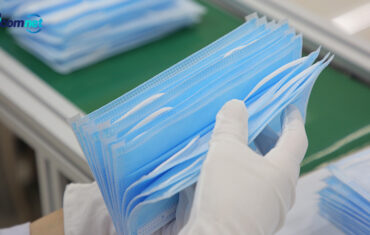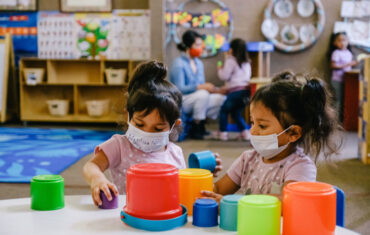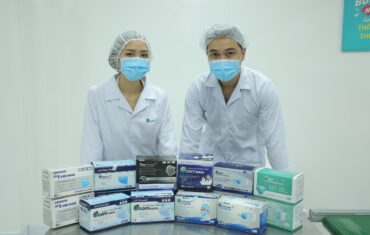Washing with soap and water is best, but most alcohol-based hand sanitizers are fine to use on young children as long as you handle them with care. Use just a pea-size amount and rub your child’s hands until they’re completely dry so he doesn’t try to lick or swallow any gel. Then store the bottle safely out of reach.
Why the caution?
The alcohol content in most hand sanitizers is 60 to 70 percent – the minimum amount needed to kill germs. It evaporates off the skin almost immediately, but you want to make sure your child doesn’t get hold of a bottle of sanitizer and try to drink it.
You’ll also want to be careful with sanitizing wipes. Babies and toddlers can suck on them and swallow alcohol, so don’t leave wipes anywhere your child can get to them. Also, be sure you’re using “sanitizing” wipes to clean your child, not the “disinfecting” wipes made by Clorox or Lysol that are for surfaces.
Note that hand sanitizers and wipes don’t work as well as soap and water on dirty or greasy hands, and they don’t work well on certain germs like Cnorovirus. Finally, they can irritate or dry out the skin. So it’s fine to use them when you’re out and about but try not to rely on them too much.
What if my child swallows some hand sanitizer?
If your child licks a little hand sanitizer gel, there’s no need to panic. According to poison control experts, a tiny amount is rarely harmful. Just wipe her mouth and have her drink some water.
Is there a safer type of hand sanitizer for kids?
Alcohol-based hand sanitizers that use ethyl alcohol may be safer than the ones that use isopropyl alcohol. Also, it’s best to avoid brands with scents, dyes, or glitter.
What about alcohol-free hand sanitizer?
Some hand sanitizers use an ingredient called benzalkonium chloride (BAC). It works for far longer than alcohol, so it’s often used in hospitals. But it’s not the best choice for home use because BAC can be irritating to the skin and eyes, and even small amounts can be toxic. A few brands rely on essential oils alone to kill germs. The ones that use thyme, oregano, or lemon oils can work against certain germs, but these oils are also skin irritants and are best avoided on babies.






